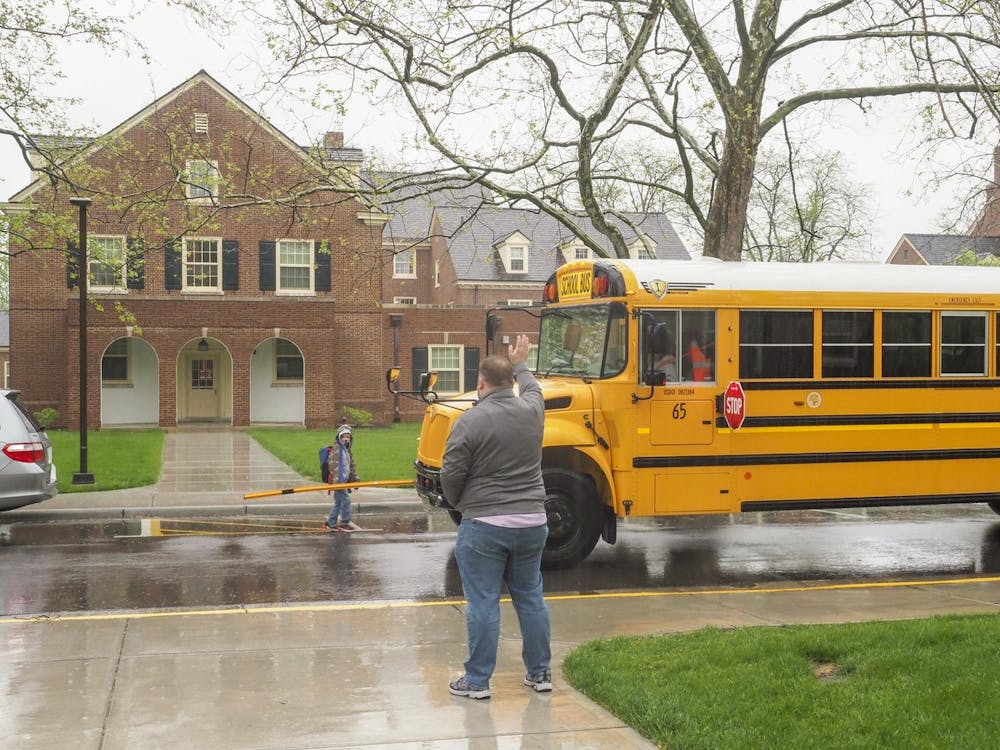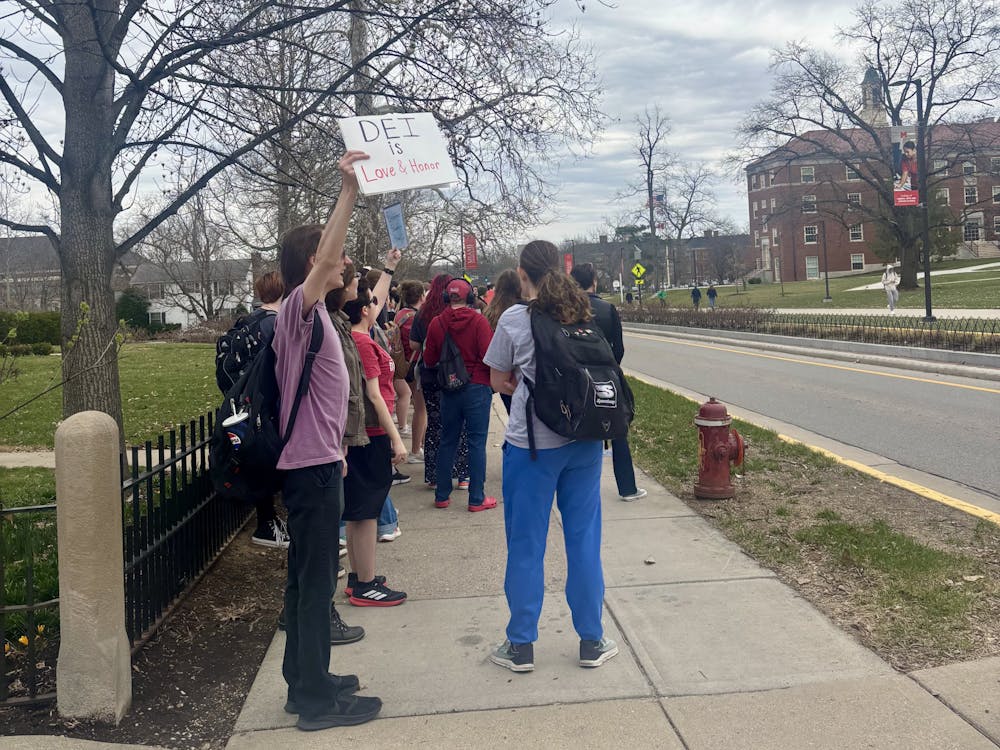Miami University students living in Porter and Withrow Halls have a few unique residents living down the hall this year – kids.
Jonathan James, resident director of Anderson and Porter Halls, has been living and working in college residence halls for almost a decade. Currently, he lives with his wife and two children – 7-year-old Joshua and 3-year-old Abigail – in Porter Hall, located on South Quad.
James was already working in residence halls when his children were born, and said that the decision to continue living there was an easy transition.
“It wasn't a hard decision,” James said. “It was actually quite a natural decision that my children were born into.”
James said he and his family embrace the idea of living in a residence hall, taking advantage of the unique experiences that living on a college campus offers. They participate in programs geared towards kids, like skating at Goggin Ice Center or gymnastics lessons at Sawyer Hall. The family loves to attend different sporting events, and Joshua has made it a goal to get on the jumbotron as many times as possible.
Sometimes, they even grab meals in Armstrong Student Center, a building usually populated only by students.
“My kids love going to Armstrong and grabbing dinner together amongst the college students,” James said. “And I think sometimes college students are like, ‘Oh, look, it's kids.’ And then sometimes college students are like, ‘It's kids, what are they doing here?’”
Although the kids may witness the occasional party while walking Uptown or playing in the grass on North Quad, James said he and his wife use it as a learning experience and often return the kids’ questions with ones of their own.
“Sometimes there's questions, like, ‘What are those people doing?,’” James said. “[And we’ll say], ‘What are those people doing?’ So kind of answering the question with a question to kind of let them kind of think about that curiosity-wise.”

Jonathan James said it was an easy decision to live in the residence halls with his family, and they embrace the idea.
In general, James said students have been very receptive to his kids, even if some things may seem a little odd, like a school bus pulling up outside a residence hall. When Abigail was born, the resident advisors (RA) he oversaw were just as excited as he was – even though it was in the middle of a huge campus event.
“We went to the hospital, and I remember texting pictures of swaddled up Abigail to my RAs who were all at Charter Day Ball in February of 2018,” James said. “And it was a good, big celebration, and everyone loves [it]. Like, ‘Oh, there's a baby!’”
Enjoy what you're reading?
Signup for our newsletter
Joshua and Abigail aren’t the only kids on campus, though.
Joe Hawkins, assistant director of residence life, lives in a Withrow Hall with his wife and two kids.
Like James, Hawkins has lived in residence halls for much of his career and found the decision to raise his family on a college campus an easy one.
While living on campus benefits his family, Hawkins also feels that it provides students with a unique opportunity to interact with people besides other students.
“It's beneficial to the students to have these diverse interactions with people outside of college,” Hawkins said. “[It] sort of keeps them rooted in a community, and remember that there is life outside of being a college student ... and it just broadens their experience while in college.”
Also like James, Hawkins said that the students he and his family encounter are friendly and talkative, especially to his 8-year-old son, Silas.
Hawkins said a unique benefit to his son growing up in a residence hall is his ability to speak like an adult, and he believes that this has been largely influenced by the way college students speak to him.
“They'll come down to his level and play in his imaginative spaces, but … never have they used baby talk,” Hawkins said. “They just talk to him.”
Silas finds new people to talk to all over campus, and Hawkins often finds him sitting with strangers in the dining hall (with Hawkins’ supervision, of course).
“People know who I am because I'm the dad of the kid that came and talked to them in the residence [hall] and the dining hall,” Hawkins said. “He'll just walk up to a table and be like, ‘Hi, how are you today?’”
Both James and Hawkins embrace their ability to raise their kids in a unique living situation where they can interact with people that they wouldn’t see on a regular basis.
“I appreciate most of the time when classes are in session, because there is … an increase in offerings of meeting with [and] interacting with people that are different than ourselves,” James said. “And that is a very important thing that I want my children to know, is that I want them to be raised in an environment where they can feel like they can make friends with anybody, regardless of what they look like.”
And, although their living situation may not seem normal to anyone else, neither James nor Hawkins would want to live anywhere different.
“I wanted to work with college students and I also wanted a family and I wanted kids,” James said, “and so we have kind of the best of both worlds.”




